Introductions:
Introduction
The Dassault Mercure is a twin-engined narrow-body jet-powered airliner developed and manufactured by French aircraft firm Dassault Aviation. According to Dassault, it was the first large-scale European cooperative civil aeronautics programme.
During 1967, the Mercure was proposed as a French competitor to the American Boeing 737. It was Dassault's first venture into the commercial jet airliner market, the company having traditionally built fighters and executive jets. On 28 May 1971, the prototype conducted its maiden flight, while the type entered service on 4 June 1974 with French airline Air Inter.
Attempts were made to market the type in the US, including partnerships with American manufacturers Douglas, Lockheed and General Dynamics, with the vision of producing it in the United States. However, the Mercure had very little success on the market, which has been attributed to several factors, including a lack of range in comparison to rival aircraft. As a consequence, there were only 12 aircraft constructed, all of which were built between 1971 and 1975. The Mercure performed its final flight in 1995.
Developments
During the mid-1960s, Marcel Dassault, the founder and owner of French aircraft company Dassault Aviation, as well as other parties such as the French Directorate General for Civil Aviation (DGAC), examined the civil aviation market and noticed that there was no existing aircraft that was intended specifically to serve low-distance air routes. Thus, it was found that there could be a prospective market for such an airliner, if it were to be developed. The DGAC was keen to promote a French equivalent to the popular American Boeing 737, and suggested the development of a 140-seat airliner to Dassault.
In 1967, with the issuing of backing by the French government, Dassault decided to commence work on its short-haul airliner concept. During 1968, the initial studies performed by the company's research team were orientated around a 110 to 120-seat airliner which was powered by a pair of rear-mounted Rolls-Royce Spey turbofan engines; as time went on, a specification for a 150-seat aircraft with a 1000-km range (540 nm) was developed. As envisioned, the new airliner would attack this market segment at the upper end with a 140-seat jetliner, contrasting against the 100-seat Boeing 737-100 and the 115-seat Boeing 737-200 variants then in production. In April 1969, the development programme was officially launched.
This aircraft was viewed as being a major opportunity for Dassault to demonstrate upon the civilian market its knowledge of high-speed aerodynamics and low-speed lift capability that had previously been developed in the production of a long line of jet fighters, such as the Ouragan, Mystère and Mirage aircraft. The French Government contributed 56 per cent of the programme's total development costs, which was intended to be repaid by Dassault via a levy on sales of the airliner. The company also financed the initiative with $10 million of its own money, as well as being mainly responsible for costs related to manufacture. The program cost was $75 million and the unit cost $6 million in 1971, raised to US$6.5 million in 1972.
According to aerospace publication Flight International, the design of the new airliner had been shaped by Dassault's "philosophy of aiming the aircraft at a corner of the market which it believes existing types do not adequately serve". Marcel Dassault decided to name the aircraft Mercure (French for Mercury). "Wanting to give the name of a god of mythology, I found of them only one which had wings with its helmet and ailerons with its feet, from where the Mercure name.." said Marcel Dassault. Extremely modern computer tools for the time were used to develop the wing of the Mercure 100. Even though it was larger than the Boeing 737, the Mercure 100 was the faster of the two. In June 1969, a full scale mockup was presented during the Paris Airshow at Le Bourget Airport. On 4 April 1971, the prototype Mercure 01 rolled out of Dassault's Bordeaux-Merignac plant.
On 28 May 1971, the maiden flight of the first prototype, powered by a pair of Pratt & Whitney JT8D-11 turbofan engines, capable of generating up to 6,800 kgf (15,000 lbf) of thrust, took place at Mérignac. On 7 September 1972, the second prototype, which was powered by a pair of Pratt & Whitney JT8D-15 engines, which would be used on all subsequent Mercures built, flew for the first time. On 19 July 1973, the first production aircraft conducted its maiden flight. On 12 February 1974, the Mercure received its Type certificate and, on 30 September 1974, was certified for Category IIIA approach all-weather automatic landing (minimum visibility = 500 ft, minimum ceiling = 50 ft). The Mercure 100 was also the first commercial airliner to be operated by a 100% female crew on one of its flights.
Dassault tried to attract the interest of major airlines and several regional airlines, touting the Mercure 100 as a replacement for the Douglas DC-9. A few airlines showed some initial interest but only Air Inter, a domestic French airline, placed an order. This lack of interest was due to several factors, including the devaluation of the dollar and the oil crisis of the 1970s, but mainly because of the Mercure's operating range – suitable for domestic European operations but unable to sustain longer routes; at maximum payload, the aircraft's range was only 1,700 kilometres (1,100 mi). Consequently, the Mercure 100 achieved no foreign sales. With a total of only ten sales with one of the prototypes refurbished and sold as the 11th Mercure to Air Inter, the airliner represented one of the worst failures of a commercial airliner in terms of aircraft sold.
Operational history
Air Inter, its only operator, used it from 1974 to 1995
Intending for the Mercure to be mass-produced in substantial numbers (According to Flight International, the 300th aircraft was projected to be delivered by the end of 1979), Dassault established a total of four plants especially for the Mercure program: Martignas (close to Bordeaux), Poitiers, Seclin (close to Lille) and Istres. Additional manufacturing work was distributed across locations throughout Europe, the production programme being a collaborative effort between Dassault, Fiat Aviazione of Italy, SABCA (Société Anonyme Belge de Constructions Aéronautiques) of Belgium, Construcciones Aeronáuticas SA (CASA) of Spain and the Swiss National Aircraft Factory at Emmen, all of which acted as risk-sharing partners in the venture.
On 30 January 1972, Air Inter placed an order for ten Mercures, which had to be delivered between 30 October 1973 and 13 December 1975.[citation needed] At this point, the break-even point was anticipated to be around 125–150 aircraft. However, due to the lack of other orders, the production line was shut down on 15 December 1975. Only a total of two prototypes and ten production aircraft were built. One of the prototypes (number 02) was eventually refurbished and purchased by Air Inter to add it to its fleet.
On 29 April 1995, the last two Mercures in service flew their last commercial flights. Throughout their combined cumulative operational lifetimes, the Mercure accumulated a total of 360,000 flight hours, during which 44 million passengers were carried across 440,000 individual flights without any accidents occurring, and a 98% in-service reliability.
The plane will be completely gone when you down load it, so follow these steps:
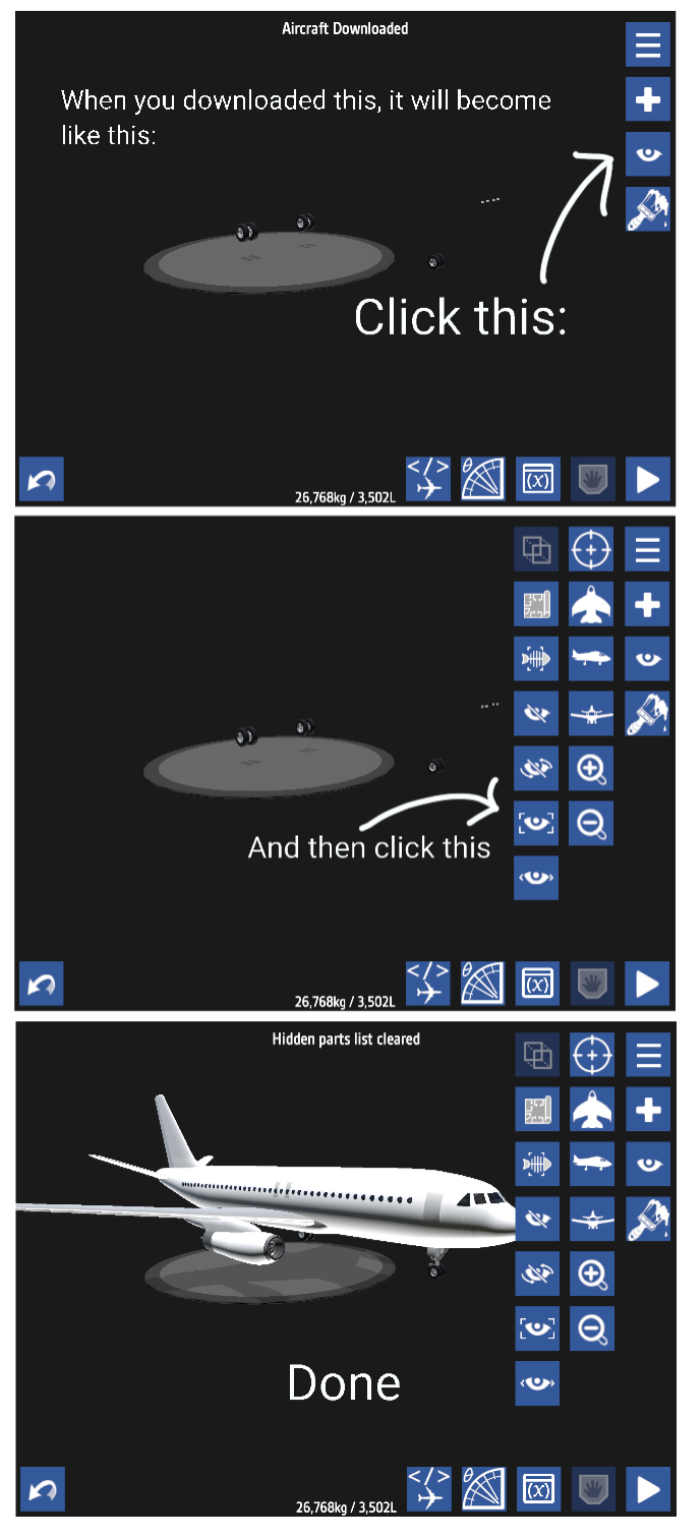
Instructions:
AG1: Cabin door
AG3: Cabin lights
AG7: Cockpit door
C'est ça! Aie du plaisir avec ça!
Specifications
General Characteristics
- Successors 1 airplane(s) +42 bonus
- Created On iOS
- Wingspan 100.6ft (30.7m)
- Length 116.4ft (35.5m)
- Height 37.5ft (11.4m)
- Empty Weight 52,804lbs (23,951kg)
- Loaded Weight 59,013lbs (26,767kg)
Performance
- Power/Weight Ratio 1.942
- Wing Loading 41.7lbs/ft2 (203.6kg/m2)
- Wing Area 1,415.5ft2 (131.5m2)
- Drag Points 34094
Parts
- Number of Parts 715
- Control Surfaces 7
- Performance Cost 3,391

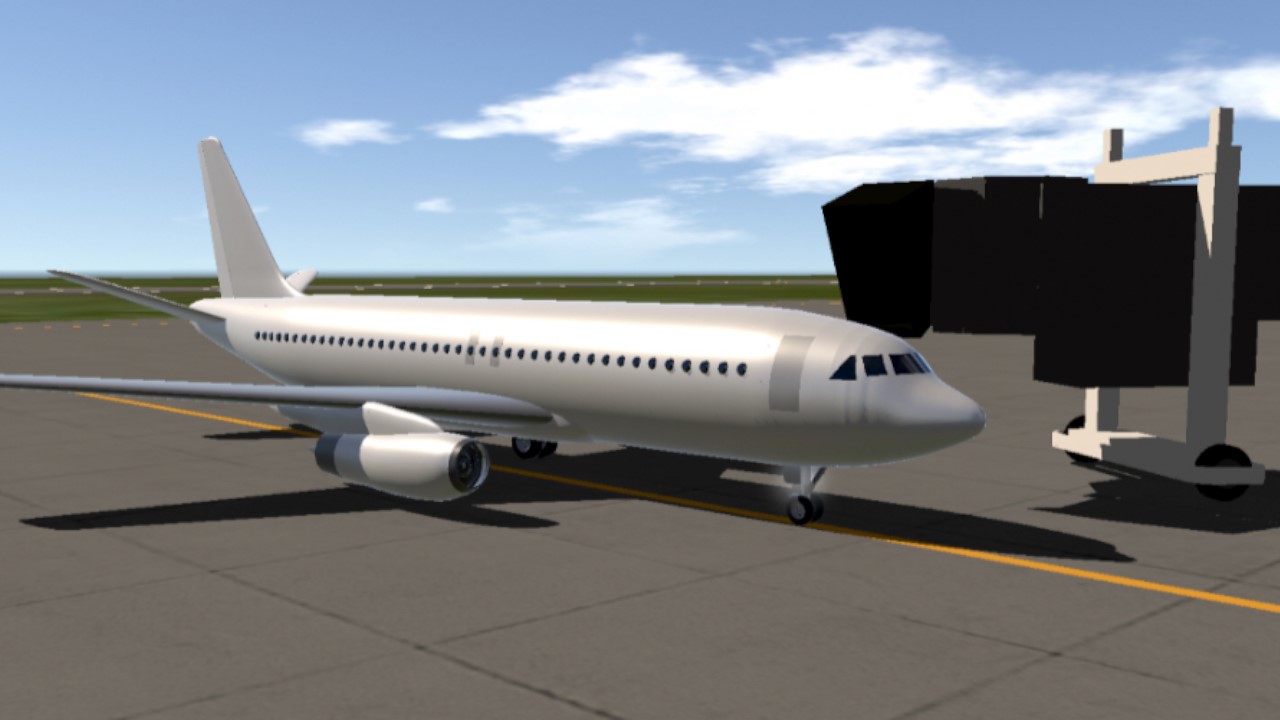
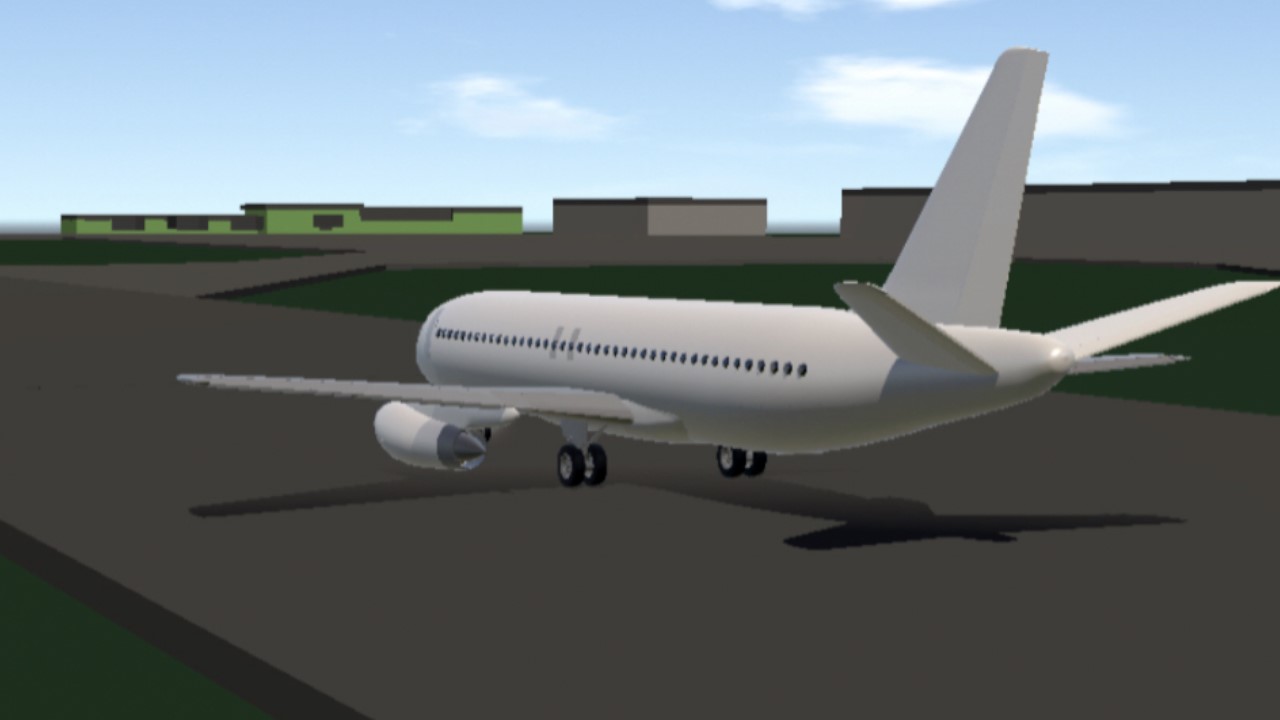
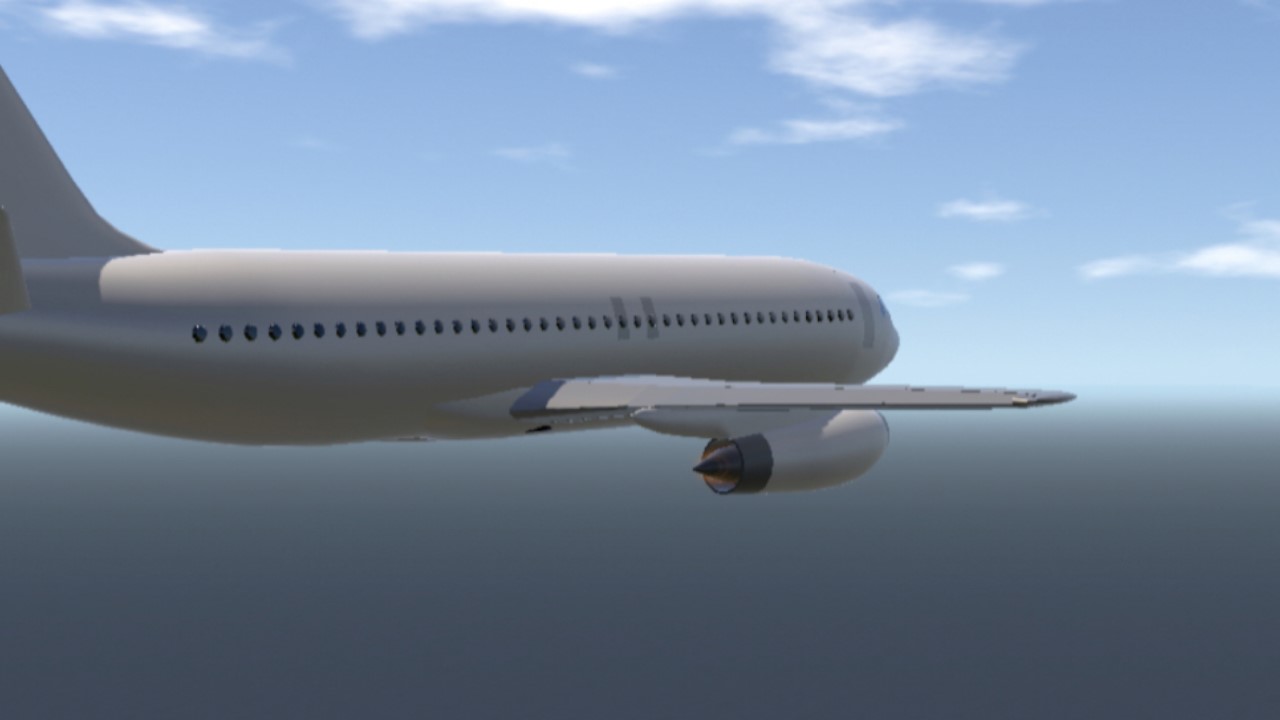
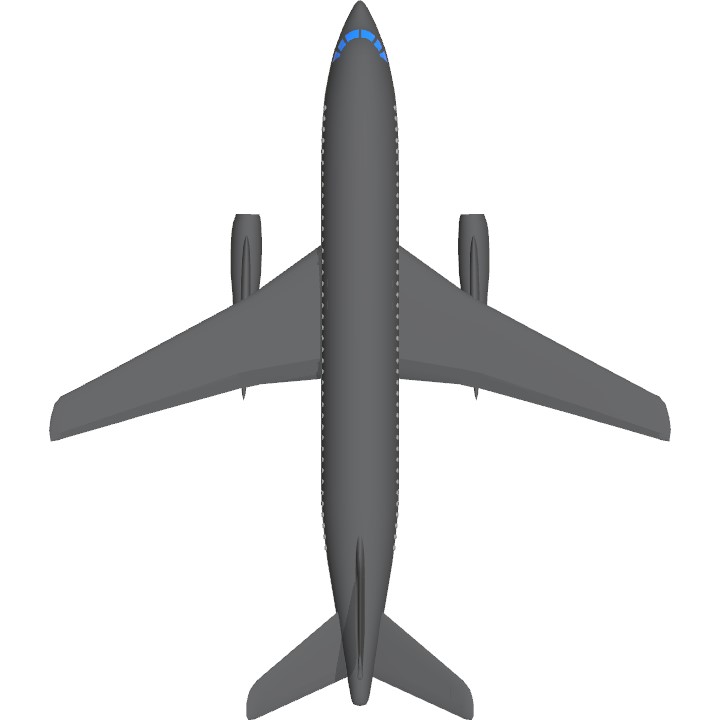
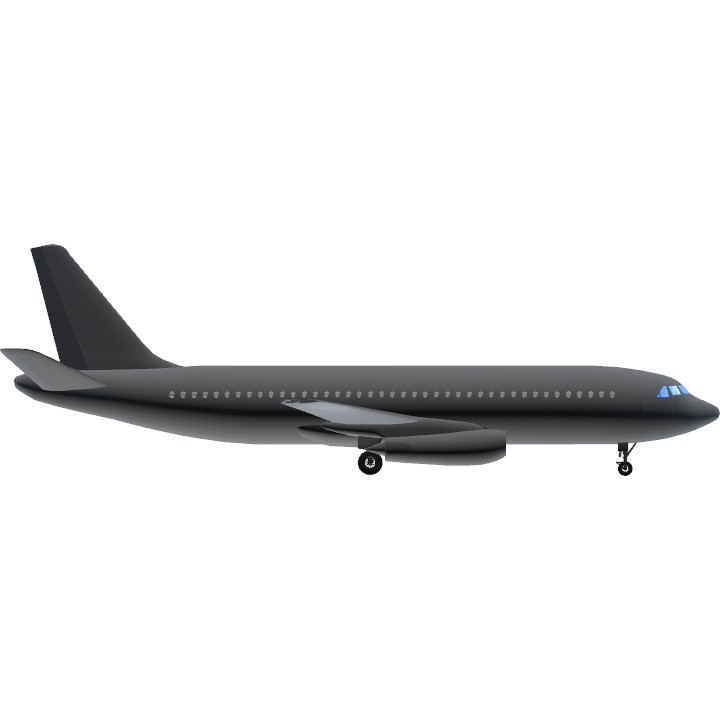

Tags requested:
@MAPA
@Noo
@DatMaluchGuy19
@TheOfficalMarylander
@ThatBadBoyUser
@XProAerospaceAircrafts
@Bryan5
@CalabooseCal
@JacksEpicGamingYT
@ZerkkZxe
@CR929thenewSPplayer BTW You have to fix the Horizontal Stabilizer And make it full interior
Where Is the
AIR INTER LIVERY!!!!
Yep
It’s free for any livery
@TheOnlyTreeLover
can i use this for my company airline?
Weaker version of 737-200
737 and a300 had a baby
Bro that's dassault Mercure look like A300 because the plane's head
ar irner
@TheOfficalMarylander because you guys kept talking about baguettes, it's not really funny anymore
@AirFrance747400 how-
I mean not to be disrespectful, but France has been joked on between the start of atleast the cold war to present day. So again
why
@DatMaluchGuy19 still a bit offensive to me
@CR929thenewSPplayer Thanks!!
Yes
@daniboi99
Uhhhhhh, Can I use this and put my company livery on it?
@AirFrance747400 dude, that was just a dumb meme.
@DatMaluchGuy19 how dare you censoring, I am from this country >:(
Fr*nch Aircraft
谢谢
@Cecilia350
酷炫
Oui!
@AirFrance747400
Ah oui, le dassault mercure, pas un grand succès mais une vraie bête!